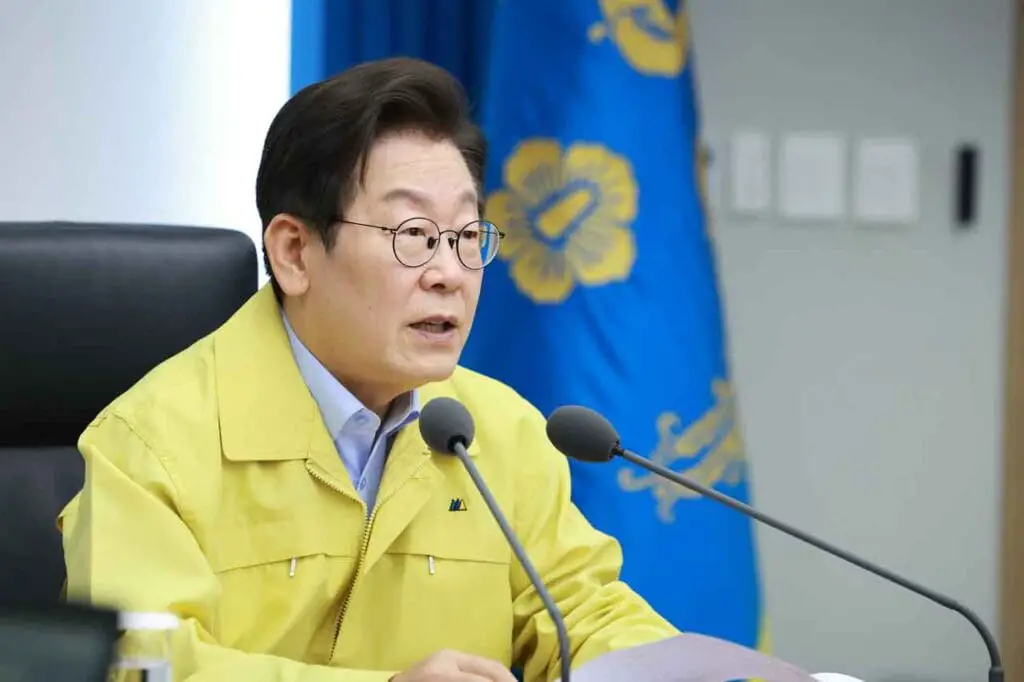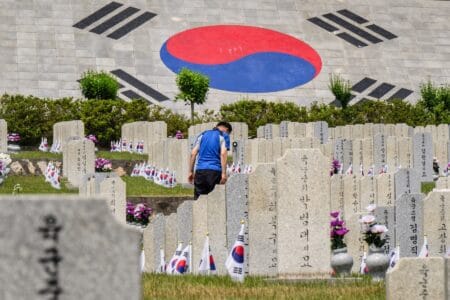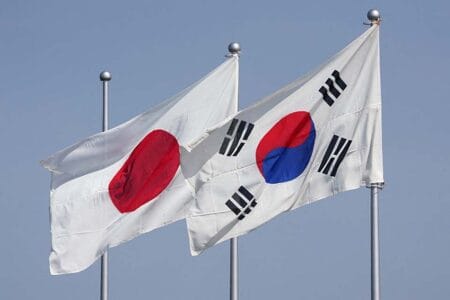August 22, 2025
SEOUL – The upcoming summit between South Korean President Lee Jae Myung and Japanese Prime Minister Shigeru Ishiba is expected to focus on building “future-oriented cooperation” in security and economic matters between the two countries.
Lee will make a two-day visit to Tokyo on Saturday for talks with Ishiba amid North Korea’s evolving nuclear and missile threats, coupled with rising global trade uncertainties stemming from Washington’s steep tariffs. Lee will then head to Washington to hold talks with US President Donald Trump on Aug. 25.
Lee, who presided over a meeting of senior presidential aides Thursday afternoon, stressed that his back-to-back visits to Tokyo and Washington come as several urgent issues must be discussed with both his Japanese and US counterparts.
“I will be making visits to the United States and Japan soon. In view of current global affairs and the restructuring of the global trade order, there are far too many pressing issues that must be addressed,” he said during the meeting.
He also highlighted the need to strengthen South Korea’s national power in the face of such uncertainties.
South Korea’s presidential office recently said that the summit agenda between Lee and Ishiba will include efforts to build “future-oriented” cooperation between the two countries, while bolstering trilateral security coordination between Seoul, Tokyo and Washington. They will also address broader regional and global challenges, presidential spokesperson Kang Yu-jung added.
Lee has pledged a “two-track” approach towards Japan, vowing to separate historical disputes from areas of practical cooperation. Both governments have signaled urgency in expanding ties amid mounting trade pressures from Washington and security concerns over North Korea’s growing partnership with Russia.
The presidential office announced Thursday that Lee and first lady Kim Hea Kyung are set to arrive in Tokyo on Saturday morning, accompanied by aides and members of the press corps.
They will then attend a luncheon meeting with members of the Korean community in Japan, which will be followed by an official summit and dinner with Japanese Prime Minister Shigeru Ishiba.
On Sunday, Lee will meet with key members of the Japanese parliament in the morning, before departing the country.
With security issues at the top of his summit agenda with Ishiba, Lee said he would pursue a three-step plan for the denuclearization of North Korea, which would involve dialogue with Pyongyang while underscoring South Korea’s alliance with the US, in a recent interview with Japan’s Yomiuri Shimbun.
The interview was held on Tuesday, but the summary of the transcript in Korean was released by Lee’s office on Thursday.
He said the first stage of the plan would focus on freezing North Korea’s nuclear and missile programs. The subsequent stages, he added, would aim at reducing and ultimately dismantling the North’s nuclear arsenal.
Seoul, he said, will maintain close coordination with Washington while also seeking inter-Korean dialogue to create conditions for progress toward denuclearization.
Lee proposed developing an Arctic shipping route as a possible area of cooperation involving the two Koreas, the United States, Japan and Russia.
On relations with Japan, he said his government would honor past agreements on the contentious issues of wartime forced labor and the “comfort women,” a euphemism for those forced into sexual slavery by the Japanese military.
“It is very difficult for the South Korean people to accept these agreements,” he said. “But as they are promises made between countries, it would be undesirable to overturn them.”
mkjung@heraldcorp.com







